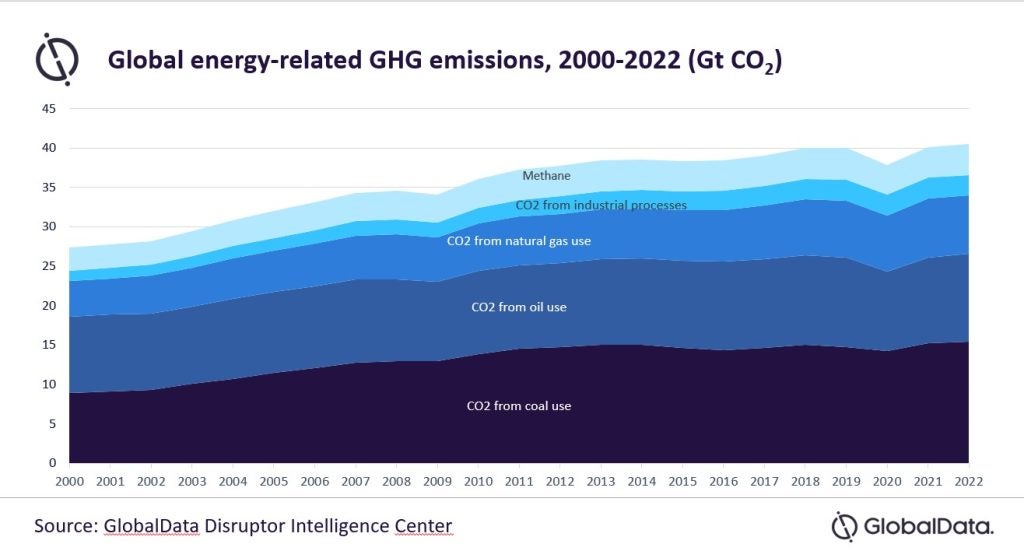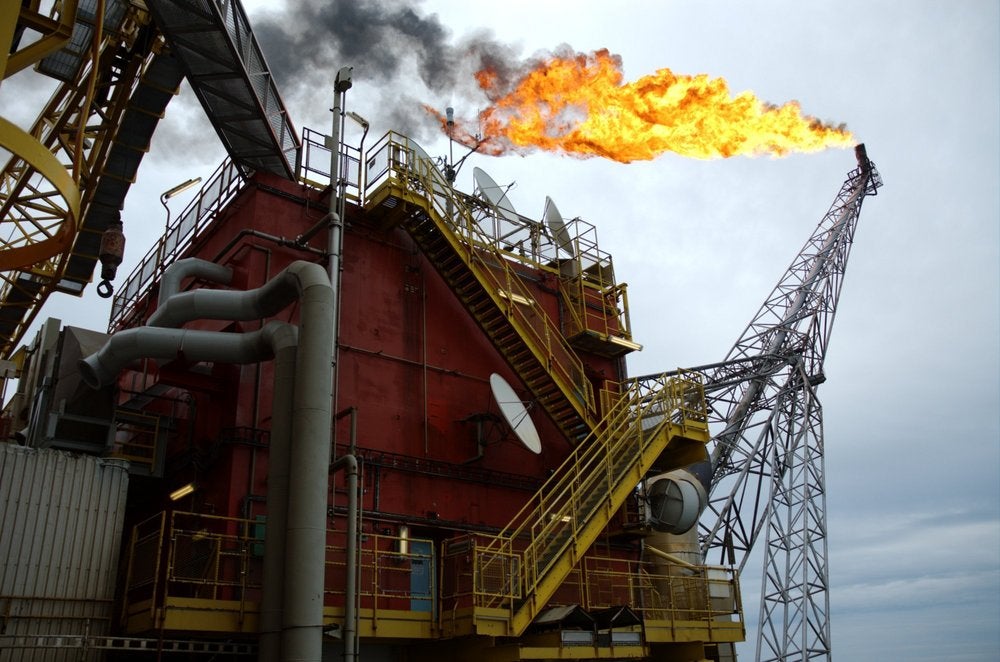Greenhouse gas (GHG) emissions generated by oil and gas operations—also known as scope 1 and 2 emissions—accounted for 15% of total energy-related emissions worldwide in 2022.
A further 40% of energy-related emissions came from the use of oil and gas for power generation, heating, vehicle fuel, and industrial processes, also known as scope 3 emissions.
Most net-zero targets set by oil and gas companies emphasize on scope 1 and 2 emissions. To reduce scope 3 emissions, oil and gas companies are switching their products to lower-carbon sources of energy including hydrogen, LNG, biofuels, and renewables.
Global energy-related GHG emissions, 2000-2022 (Gt CO₂)

There is growing awareness about the ill-effects of climate change among the general public and also energy investors. Carbon emissions from the energy sector is a major contributor towards the climate change. Oil and gas production, gas processing, liquefied natural gas (LNG), oil refining, and petrochemical segments of the industry value chain are identified as the key carbon emission sources
See Also:
The mitigation approach adopted in this regard include flaring reduction, carbon capture, electrification of operations, hydrogen, and nature-based solutions like carbon offsets.
How well do you really know your competitors?
Access the most comprehensive Company Profiles on the market, powered by GlobalData. Save hours of research. Gain competitive edge.

Thank you!
Your download email will arrive shortly
Not ready to buy yet? Download a free sample
We are confident about the unique quality of our Company Profiles. However, we want you to make the most beneficial decision for your business, so we offer a free sample that you can download by submitting the below form
By GlobalDataSeveral of the leading companies have set themselves target of net-zero emissions in operations by 2050. These are in line with the climate goals for developed countries, while developing countries, such as China and India are aiming for 2060 and 2070.
Transitioning to cleaner energy alternatives is expected to have an impact on global carbon emission reduction. Energy transition necessitates massive overhaul in the energy framework that has propelled the stupendous global economy in the last century.









